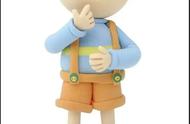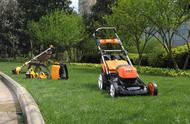关于leave “使,让”不用于被动语态四种结构
用法如下
【一】leave sb to do sth
【二】leave sb doing sth
【三】leave sb done
【四】leave sb/sth 形容词/副词/介词
leave 让,使,即可以用于主动语态,又可用于被动语态
㈠ leave 宾语 to do sth 让某人做某事(强调未来的动作)
⑴让某人做/干某事(强调未来的动作)
Leave him to do it himself.
让他自己做这个事情吧。
②We left him to paint the gate. 我让他油漆这个门。
③I'll leave you to settle all the business. 我会让你安排/处理所有这些生意。
㈡leave 宾语 doing让某人做某事(强调当时正在发生的动作)
⑴让某人继续处于某种状态(这种状态一直持续)
①What he said left me thinking deeply.
他的话让我陷入沉思。
②Don't leave her waiting outside in the rain.
不要让她一直在外面等待。
③We left him painting the gate.
我们让他一直在油漆这个门。
㈢leave 宾语 done (动词过去分词)(使某事被做)
⑴ 使处于某种被动的状态,并强调动作的被动性,宾语为动作承受者
①We can’t leave such an important matter unfinished.
我们不能让这么重要的一件事情半途而废。
②Please excuse me if I have left any of your questions unanswered.
如果你有任何问题没有被我回答,请谅解。
㈣ leave 宾语 形容词/副词/介词短语
⑴ 使宾语处于某一特定状态
①Who left the door open. 谁让们开着。
②His illness has left him weak.
他的疾病使他很虚弱。
I was left with a ray of hope
别人给我留有一线希望。















